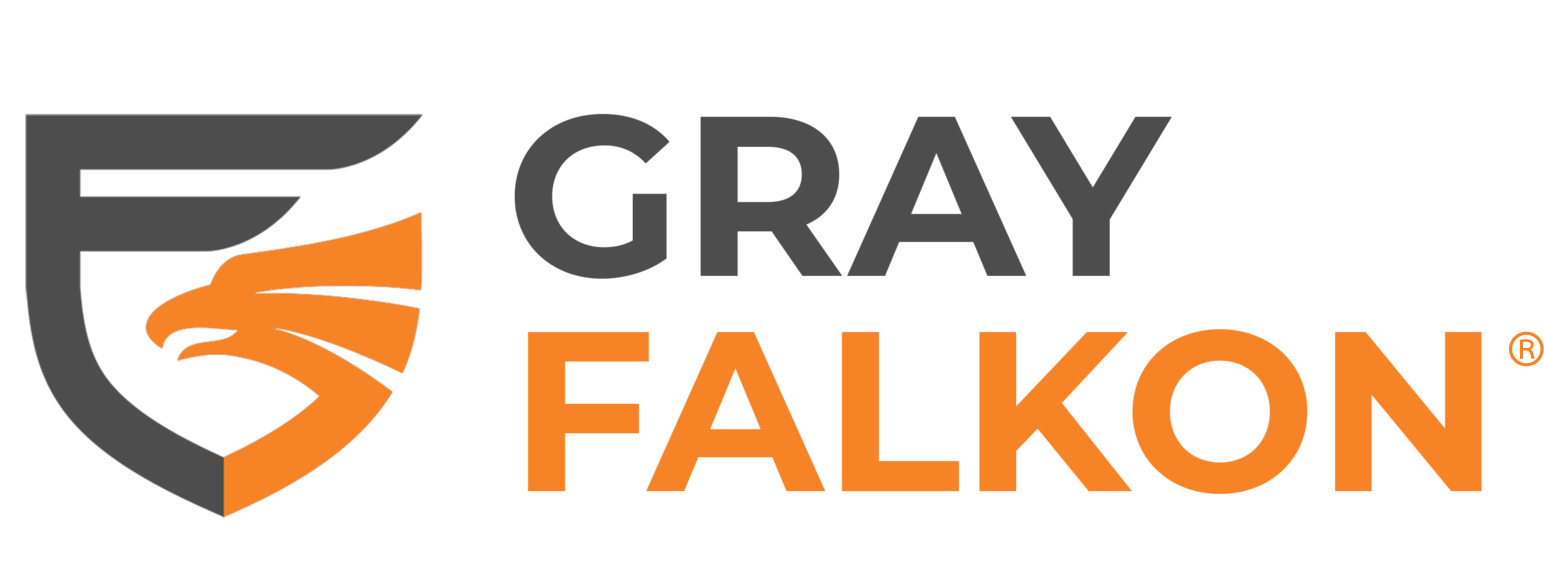
For chocolate lovers, few things are more disappointing than biting into what should be a rich, smooth piece of confectionery bliss, only to find a melted, congealed mess. Beyond just ruining the enjoyment, improperly shipped chocolate can create a significant food safety hazard. That’s why Amazon’s “meltable” policy taking effect on April 15, 2024 is so important for protecting consumers.
Under Amazon’s inventory requirements, the marketplace will dispose of all heat-sensitive food products like chocolate, gummies, and jelly or wax-based items that arrive at their fulfillment centers after April 14th. Sellers have until then to liquidate their existing meltable inventory or submit removal orders to avoid having it destroyed and paying disposal fees.
While the policy is a major step forward for consumer protection, it’s just the latest assault in an ongoing battle between brands and unauthorized third-party sellers on Amazon’s marketplace. Gray Falkon, a leader in online brand protection, has been on the front lines leveraging advanced AI, automation, and rigorous test buy programs to identify and shut down sellers shipping chocolate and other heat-sensitive products without proper temperature safeguards.
The Melting Point
Gray Falkon represents some of the world’s premier chocolate manufacturers who have been plagued by rampant issues with third-party marketplace sellers. Despite brand owner assurances and clear shipping requirements, a shockingly high percentage of purchases made through unauthorized Amazon resellers arrive as melted, congealed messes unsuitable and unsafe for consumption.
“We’ve conducted large-scale test buy programs targeting third-party chocolate resellers, and the results have been incredibly disturbing,” said Mandy Bingham, VP of Brand Success at Gray Falkon. “In some cases, over 80% of test purchases arrived completely melted and destroyed. This is unacceptable from a product quality standpoint and raises major food safety concerns.”
The root issue, Bingham explains, is that these unauthorized resellers often acquire products through diversion – gray market channels that allow them to undercut prices from authorized distributors. With tighter profit margins, they look to cut corners on shipping to increase margins further, frequently shipping chocolate products through standard inexpensive ground delivery with no insulation, ice packs, or other temperature protection.
Product shipped Fulfilled by Merchant (FBM) or Merchant Fulfilled Network (MFN) isn’t held to the same standard as Fulfillment by Amazon (FBA). Amazon can enforce the meltable policy if they are shipping the product but don’t keep track of products third-party sellers are shipping.
Product storage conditions are a huge problem. “Chocolate is extremely unforgiving when it comes to temperature control during shipping,” said Bingham. “These products need to be kept below 70°F at all times, with minimal temperature fluctuations. Anything else and you’ll end up with a product that’s just ruined.”
Documenting the Pattern
While it may seem obvious to any reasonable person that shipping delicate chocolate products in this manner is unacceptable, shutting down problematic sellers on Amazon is anything but easy. The eCommerce giant has made it clear they are committed to protecting consumers but also set a high evidence bar requiring detailed documentation of a consistent pattern of violations from any given seller.
“We’ve seen cases where brands submit hundreds of complaints about various marketplace policy violations evidenced using test buys, only to have Amazon ignore it completely,” said Bingham. “The key is providing overwhelming evidence of a systemic pattern, not just isolated incidents. That’s where strategically focused test purchase programs become essential.”
Gray Falkon’s approach is to purchase products repeatedly over time from sellers they suspect of dangerous shipping practices, carefully documenting each arrival with video of the unboxing and photos of any melted, damaged product. The evidence is then submitted to Amazon’s enforcement teams as part of comprehensive takedown requests.
“Test buys are an investment, no doubt about it,” said Bingham. “We often have to purchase hundreds or even thousands of dollars worth of products to compile compelling evidence. But the return on protecting your brand and consumers makes it worth it.”
We see a higher success rate on test buys of meltable products versus other test buys. It’s a proven and vetted approach to strategically remove the most egregious seller or biggest value for the investment in test buys.
Our unique approach to test buys paired with a strategic letter campaign that specifically cites the meltable policy is a winning strategy in the removal of third-party sellers delivering compromised products.
Leveraging AI for Intelligent Test Buys
Implementing an effective test buy program is easier said than done. There are many potential pitfalls that Gray Falkon has honed the ability to avoid through experience and the innovative application of AI and automation:
- Evading Detection: Bingham notes it’s common for Amazon’s automated systems to flag repeated purchases from the same buyer as potentially fraudulent activity and shut down accounts accordingly. Gray Falkon avoids this by using machine learning to automate purchases across a distributed network of fresh buyer accounts and residential IP addresses.
- Prioritizing Targets: With millions of third-party sellers on Amazon’s marketplace globally, intelligently targeting which ones require rigorous test buys is critical to efficiency. Gray Falkon’s AI algorithms continuously monitor seller data, product listings, pricing patterns, shipping details, customer reviews, and other data points to identify high-risk sellers most likely to be engaging in concerning practices.
- Staying Agile: Unauthorized sellers on Amazon are a wily, adaptive bunch, constantly changing tactics in an attempt to obfuscate violations, evade detections, and dodge enforcement efforts. Gray Falkon’s test buys infrastructure leverages automation and AI to rapidly adjust factors like geographic purchase locations, shipping speed choices, and other variables. This agility ensures Gray Falkon can swiftly adapt test buys to identify bad actors developing novel evasion strategies before they can gain a foothold.
Going on the Offensive
While comprehensive test buy documentation provides the hard evidence required for Amazon enforcement actions, Gray Falkon also employs more proactive measures to combat problematic sellers. This includes monitoring reseller forums and communities to identify emerging issues and shady seller tactics early.
“You’d be amazed at what some resellers brag about on these forums,” said Bingham. “Things like their ‘hot truck delivery’ methods where they load up an unrefrigerated truck with chocolate and ship it cross-country in the dead of summer. Just insane stuff that we need to get ahead of.”
Armed with this intelligence, Gray Falkon has had success sending deterrence messages to groups of high-risk sellers, sharing examples of successful delistings and enforcement actions against sellers shipping chocolate without temperature protection. These messages often included specific order numbers and evidence from monitored test buys – dramatically increasing credibility.
“We’ve absolutely seen a drop-off in suspect orders after pushing out some of those deterrents,” said Bingham. “These sellers are extremely motivated to stay under the radar, so showing them brands are watching and playing offense makes many of them blink.”
Gray Falkon also utilizes Amazon’s seller feedback system, leaving detailed notes on orders documenting quality issues, unacceptable shipping practices, and more. While an imperfect system that lacks robust accountability for sellers, it provides an additional channel to flag issues that unauthorized resellers on the platform can’t ignore.
A Winning Battle, but the War Rages On
Gray Falkon’s partnerships with brands have begun to move the needle on Amazon’s enforcement against unauthorized sellers failing to ship chocolate and other heat-sensitive products properly. Bingham and her team have achieved the delisting and blocking of numerous problematic resellers selling clients’ products.
But it’s just a start. Unauthorized resellers continue flooding the marketplace daily, looking for any edge to hawk products with minimal overhead costs. Even with Amazon’s meltable disposal policy, the constant whack-a-mole game of identifying and shutting down bad actors will continue for brands.
“Amazon’s policy is certainly a step in the right direction, and may deter some of the more egregious shippers,” said Bingham. “But at the end of the day, resellers are endlessly mercenary in their quest to cut costs and they’ll quickly look for loopholes or adjustments to stay ahead of any new restrictions.”
That’s why Gray Falkon’s comprehensive, technology-driven approach to monitoring all aspects of the reseller ecosystem will remain critical moving forward. By continuously investing in advanced AI, robust automation, data science, and efficient test purchase operations, Gray Falkon’s Brand Success team is committed to protecting brands and consumers alike.
“We’re playing the long game here, evolving our strategies and tactics as quickly as the resellers to stay ahead,” Bingham said. “No brand should ever have to worry about consumers experiencing the disappointment and potential danger of a melted, ruined product. We’ll continue fighting as long as it takes to make that nightmare a rarity on Amazon and other online marketplaces.”
Protect Your Brand
If you’re a brand or authorized seller facing challenges from the gray market and unauthorized third-party sellers, schedule a demo and discover how Gray Falkon’s comprehensive solution can fortify your defenses.



